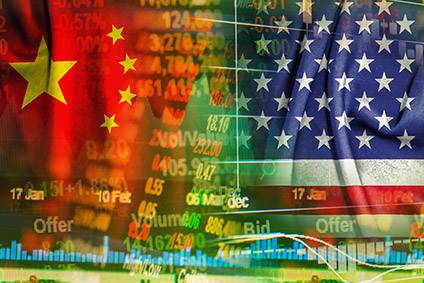
The US has taken another step in shaking up its trading relationship with China – this time pulling out of a UN treaty that offers low rates for foreign postal deliveries of small packages to the US.
The move is reportedly an attempt to tackle the shipment of counterfeit goods including clothing and illegal drugs from China.

Discover B2B Marketing That Performs
Combine business intelligence and editorial excellence to reach engaged professionals across 36 leading media platforms.
The Universal Post Union (UPU) determines the rates that each of its 192 member countries charge to deliver mail and small parcels from foreign carriers. The rates charged to China and other developing countries have been lower for decades. According to a New York Times report, the e-commerce boom in recent years has meant Chinese manufacturers are “taking advantage of the lower rates to ship clothing, household gadgets, and consumer electronics” hurting domestic manufacturers while facilitating the entry of counterfeit goods into the country.
On 23 August, the White House published the Presidential Memorandum for the Secretary of State, calling for reforms to the traditional system that include “supporting a system of unrestricted and undistorted competition between the US and foreign merchants.”
Last week it handed in its notice to pull out of the UPU, citing “sufficient progress had not been made” in terms of reform.
The US says it will use the one-year notice period to negotiate a resolution and – if successful – will withdraw its notice and remain in the UPU.

US Tariffs are shifting - will you react or anticipate?
Don’t let policy changes catch you off guard. Stay proactive with real-time data and expert analysis.
By GlobalDataThe National Association of Manufacturers president and CEO, Jay Timmons, applauded the move.
“President Trump deserves tremendous credit for the administration’s focus on eliminating the anti-US manufacturer subsidy China receives from the US Postal Service,” he said. “This outdated arrangement contributes significantly to the flood of counterfeit goods and dangerous drugs that enter the country from China. Manufacturers and manufacturing workers in the United States will greatly benefit from a modernised and far more fair arrangement with China.”
UPU deputy director general Pascal Clivaz, however, said it was “regrettable the US has taken this step.”
“I wish to assure everyone that the UPU remains committed to the noble aims of international collaboration. This means ensuring that, by working with all 192 member countries, the UPU treaties best serve everyone, including the United States of America. I remain hopeful that, through discussion, through a constructive dialogue, we can help to resolve this issue to everyone’s satisfaction.
“The decision of the United States of America to withdraw from the UPU treaties is a serious one, but I believe, with the support of other members, we can resolve the matter amicably.”
US President Trump has been sounding off about “unfair trade practices” with China for some time now, and earlier this year began imposing duties on Chinese goods entering the US. China has been retaliating with its own levies on American goods.
The most recent set of tariffs were imposed last month with China issuing duties on US$60bn worth of US goods after Trump had ordered tariffs on US$200bn worth of goods from China entering the US.
The US apparel industry has voiced its concerns of the impact the trade stand-off could have. According to the American Apparel and Footwear Association (AAFA) 41% of all apparel and 72% of footwear that comes into the US is from China.
“For those of us in our industry that import a lot from China, it is going to be majorly disruptive,” says CEO of AAFA, Rick Helfenbein.
He is urging leaders from both sides to have the relevant discussions to resolve the matter.
“The problem we have is this started off as an economic discussion. It is now morphing into a strategic discussion. None of us is comfortable with this”.
US-China trade war: How things stand from CNBC.





